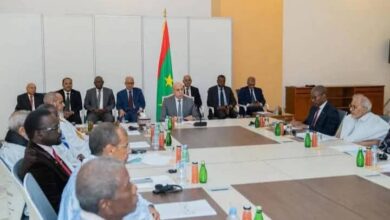Ministers of Tribes or Ministers of the State? Field Visits Turned into Empty Carnivals

In a scene where the official blends with the tribal, and the public with the private, several ministers’ visits to Mauritania’s interior have turned into folkloric parades devoid of any real developmental impact.
Grand receptions, tribal rivalries, slogans lethal to the spirit of the state, and media flashes feeding on the sarcasm of the moment, all presenting a false image of popular solidarity.
Did the Secretary-General of the Presidency’s visit to Néma lead to the repair of the road linking the city to his village, Benkou? Did it bring drinking water to those thirsty municipalities?
What did the Minister of Digitalization’s tour of the mahadras in Medredra add, other than souvenir photos? What tangible results came from seasonal festivals other than more chants and feasts?
And was the traditional cap worn by former Minister Ba Ousmane, as he wandered among a herd of cattle, anything more than an attempt to revive a symbolism without substance?
Were the problems of Bassiknou solved after the Minister of Defense spent half a month there, in a city that cannot even save a drowning man from its dam?
And what project did the Minister of Fisheries bring to Amourj and Adel Bagrou, both of which stand as prime examples of failed state projects and a stalled road left unfinished for five years?
If these visits had been part of a developmental project with defined goals, they might have made a difference. And if they were merely administrative missions, then they should have been allocated budgets, resources, and real capacities to make them impactful in the lives of citizens.
But for them to turn into rituals of allegiance, where horses and camels are paraded, tribal glories that the state should have turned the page on are revived, or false honors with no heritage or achievement are celebrated — this is nothing but a revival of old rivalries and the ignition of traditional conflicts.
As for the ministers — most of whom have failed to be ministers of their sectors — how can they turn into ministers of districts? In fact, some are now viewed as tribal ministers, family representatives, or even merchants’ agents, rather than carriers of a state vision or implementers of public policy.









